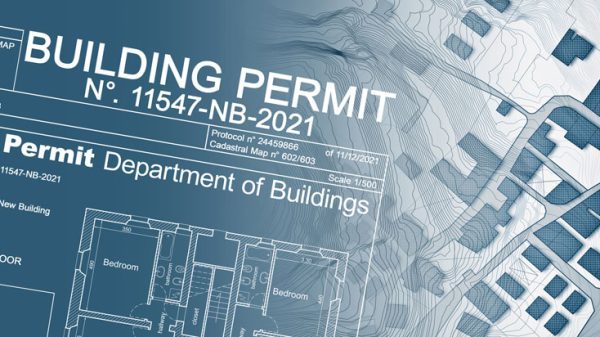Table of Contents
Selling Your Mobile Home: Permits and Documentation
Selling a mobile home can be a rewarding but intricate process, especially in today’s competitive market. While getting your property ready for potential buyers, it’s essential to focus not only on curb appeal but also on the legal and administrative aspects of the sale.
Two often overlooked, yet crucial, elements are obtaining the necessary permits for repairs and upgrades and keeping detailed documentation of the maintenance and improvements you’ve made over the years. These steps not only instill confidence in buyers but also protect you from potential legal complications.
In this guide, we will explore why securing permits and maintaining thorough documentation is essential and how it can significantly improve your chances of a smooth and profitable sale.
1. Why You Need Permits for Your Mobile Home Repairs and Upgrades
When preparing your mobile home for sale, one of the most important steps is ensuring all renovations and repairs are legal and up to code. This means obtaining the proper permits for any structural changes, electrical work, plumbing modifications, or other major upgrades. Failing to do so can have serious consequences, both legally and financially.
Understanding the Importance of Permits
Permits are legal authorizations granted by local authorities that allow you to undertake specific construction or renovation work on your property. These permits ensure that the work being done complies with local building codes and safety standards, protecting both you and future owners from potential risks. When it comes to selling your mobile home, prospective buyers will want assurance that any work completed has been done according to regulations.
For instance, if you’ve made major changes such as adding an extension, installing new electrical wiring, or replacing the roof, you’ll need to have the appropriate permits in place. Even seemingly small changes like adding a new window or expanding a room may require a permit depending on local building codes.
By securing these permits, you not only ensure the quality and safety of the work but also avoid potential legal and financial penalties that could arise from unpermitted work.
The Process of Obtaining Permits
The process of obtaining permits can vary depending on your location, but it generally starts with identifying the work that requires approval. Common examples of work that typically necessitate permits include:
- Structural changes (e.g., room expansions, adding decks)
- Electrical rewiring or updates
- Plumbing modifications
- HVAC installations or upgrades
- Roof replacements
- Major renovations (e.g., kitchen remodels, bathroom overhauls)
Once you’ve determined the type of work that requires a permit, contact your local building or planning department to inquire about the specific application process. Most jurisdictions have a dedicated office responsible for issuing permits and overseeing construction projects. You can visit the office in person or check their website for information on the required documents, fees, and application forms.
When submitting your permit application, provide detailed plans and specifications for the work you intend to undertake. This includes blueprints, materials lists, and any other relevant information. If you’re not confident in preparing these documents yourself, consider hiring a professional architect or contractor to assist with the process. Their expertise can help ensure your application is complete and accurate, which can expedite approval.
Permit processing times can vary widely, so it’s advisable to apply well in advance of your planned start date. Delays in obtaining permits can impact your timeline for selling, especially if you’re planning to list the property shortly after completing the renovations.
Consequences of Skipping Permits
 Skipping the permit process can lead to significant issues down the line. If a buyer discovers that work was done without the proper permits, it can raise red flags during the home inspection. In some cases, unpermitted work can result in fines, legal action, or even the removal of the unauthorized improvements. This could delay the sale, reduce your asking price, or even result in the deal falling through altogether.
Skipping the permit process can lead to significant issues down the line. If a buyer discovers that work was done without the proper permits, it can raise red flags during the home inspection. In some cases, unpermitted work can result in fines, legal action, or even the removal of the unauthorized improvements. This could delay the sale, reduce your asking price, or even result in the deal falling through altogether.
Furthermore, insurance companies may refuse to cover damages related to unpermitted work, leaving both you and the buyer vulnerable to unforeseen expenses. Therefore, obtaining the necessary permits is not only a legal requirement but also a crucial step in protecting your investment and ensuring a smooth sale.
2. The Importance of Keeping Detailed Documentation
In addition to securing permits, keeping organized documentation of all repairs, maintenance, and improvements made to your mobile home is another critical step in the selling process. Buyers want to know the history of the property they’re purchasing, and thorough records can provide them with the peace of mind they need to move forward with the sale.
What Should You Document?
Start by creating a dedicated folder—either physical or digital—where you can store all the relevant documents related to your mobile home. This should include:
- Receipts and invoices for any repairs or improvements
- Permits obtained for work done
- Warranties for appliances, HVAC systems, or other components
- Service records for maintenance tasks (e.g., HVAC servicing, roof inspections)
- Product information for any materials or fixtures used (e.g., flooring, cabinetry, windows)
Having all of this information readily accessible allows you to present a comprehensive history of the property to potential buyers. It also shows that you’ve been diligent in maintaining and improving the home, which can increase buyer confidence.
Professional Services and Contractors
If you’ve hired professionals to handle repairs or upgrades, it’s essential to keep a record of their work. Include the names, contact information, and credentials of any contractors, electricians, plumbers, or HVAC technicians you’ve worked with. Buyers will appreciate knowing that the work was done by licensed professionals, and it can help streamline the sale by eliminating any concerns about the quality of the repairs.
Warranties and Guarantees
Warranties can be a significant selling point, especially for big-ticket items like appliances or HVAC systems. If any of the warranties are still valid at the time of the sale, make sure to highlight this information to potential buyers. A transferable warranty can add value to your property and give buyers added assurance that they’re making a sound investment.
Maintenance Records
Regular maintenance is a key indicator of a well-cared-for home, and buyers want to know that the property has been properly maintained over the years. Keep records of any routine maintenance tasks, such as HVAC servicing, plumbing inspections, or roof repairs. Include the dates and specifics of each service to provide a clear picture of the home’s upkeep.
The Value of Pre-Inspection Reports
If you want to go the extra mile, consider obtaining a pre-inspection report from a certified home inspector. This report can give potential buyers a detailed overview of the home’s current condition and address any concerns upfront. A pre-inspection report can help expedite the selling process by providing transparency and minimizing surprises during the buyer’s inspection.
3. How Permits and Documentation Boost Buyer Confidence
At the end of the day, the goal of obtaining permits and maintaining detailed documentation is to build trust with potential buyers. Buyers are more likely to make an offer on a property if they feel confident that it’s been well-maintained and that all renovations and repairs were done legally.
By presenting organized records of repairs, upgrades, and maintenance, you demonstrate that you’re a responsible and conscientious seller. This can help differentiate your mobile home from others on the market and increase its appeal to buyers. Additionally, having proper documentation on hand can help streamline negotiations and reduce the likelihood of disputes or delays.
4. Summary and Final Tips for Selling Your Mobile Home
To sum up, obtaining the necessary permits for repairs and upgrades, along with maintaining comprehensive documentation, are essential steps in preparing your mobile home for sale. These efforts not only ensure that your property is compliant with local regulations but also provide buyers with the information they need to make an informed decision.
When selling your mobile home, remember:
- Obtain the proper permits for any major repairs or upgrades, and make sure the work is done to code.
- Keep detailed documentation of all repairs, improvements, and maintenance to instill buyer confidence.
- Highlight professional services and warranties, as these can add value to your property.
- Consider a pre-inspection to provide buyers with a clear picture of the home’s condition.
By taking these steps, you set the stage for a smooth and successful sale, ensuring that both you and the buyer can proceed with confidence. Preparing your mobile home thoughtfully and transparently will not only help you avoid legal complications but also enhance its appeal to potential buyers in a competitive market.
Additional Resources:
- Hiring Licensed Contractors
Find licensed professionals for your repairs and upgrades through services like Angi (formerly Angie’s List) or HomeAdvisor. - Pre-Inspection Services
Consider a pre-inspection for your mobile home by connecting with certified inspectors through the American Society of Home Inspectors (ASHI).



